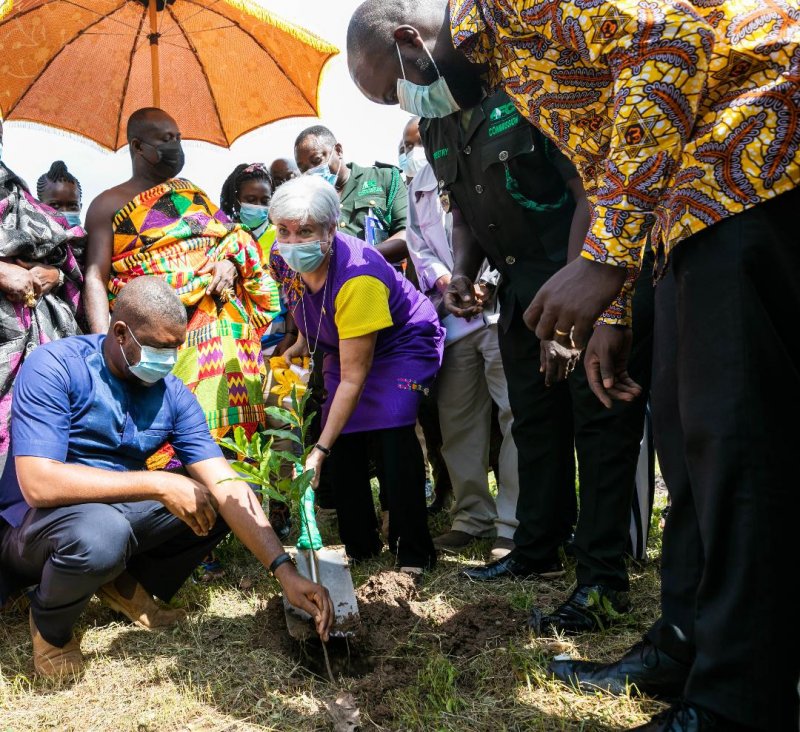The U.S government has reaffirmed its commitment to support Ghana in addressing climate change issues through protection of the environment.
Ms Stephanie S. Sullivan, the U.S Ambassador to Ghana, said this when she paid a courtesy call on the Asantehene, Otumfuo Osei Tutu II, and stakeholders in the Ashanti Region.

A statement copied to the Ghana News Agency in Accra, said the Ambassador inaugurated a U.S. government-sponsored solar panel energy system at a local health facility and participated in a tree-planting initiative as part of the Asante Kingdom Landscape Restoration Project.
The tree-planting ceremony was part of the global One Trillion Trees Initiative and the Asante Kingdom Landscape Restoration Project, launched in 2019 to plant 2.5 million trees around Lake Bosomtwe.
The statement said on Friday, April 23, Ambassador Sullivan joined Mr Alex Adomako Mensah, the Member of Parliament for Sekyere Afram Plains District, the Dawia Chief, Nana Ibrahim Mahama, the PEG Solar Ghana, and local leaders to commission a recently installed solar power system at the Dawia CHPS compound.
The system was made possible through a U.S. Agency for International Development (USAID) and Power Africa off-grid grant.
Under the project, the U.S. government funding and PEG Solar Ghana is installing 55 stand-alone solar energy systems at previously unelectrified and under-electrified healthcare facilities in the Ashanti Region.
During the commissioning, Ambassador Sullivan applauded Ghana’s partnership with PEG Solar Ghana to make quality healthcare available to everyone.
“In communities like these, stable energy can be a literal lifeline, allowing mothers to receive 24/7 high-quality healthcare services and preserving the integrity of the cold chain for vaccine storage.”
The Ambassador also paid a courtesy call on Mr Simon Osei-Mensah, the Ashanti Regional Minister, Mrs Rita Akosua Dickson, the Vice-Chancellor of Kwame Nkrumah University of Science and Technology (KNUST) and the U.S. government health and education programme partners and U.S. government exchange programme alumni to discussed mutual interests and U.S. assistance in the Region.
At KNUST, Ambassador Sullivan interacted with Professor Veronica Dzomeku, who received the recent grantee of the USAID Partnerships for Enhanced Engagement in Research programme.
The support was to help her develop WhatsApp-based referral and triage obstetrics system to help community healthcare workers reduce health care service delays in Ghana.
Ambassador Sullivan received an update on two projects funded through the U.S. Department of State’s University Partnership Initiative between KNUST and two U.S. institutions – the Texas International Education Consortium and Iowa State University.
The project was to accelerate the quality of education for Ghanaian students through an assessment of capacity, faculty development, and production of online course content at KNUST and to strengthen KNUST engineering faculty and students’ capacity to undertake participatory community development projects.
She also participated in a graduation ceremony of U.S. Embassy grantee Kids Makers Project, a Kumasi Hive initiative that introduced children between the ages of eight and 16 to STEM subjects, skills, and careers.

